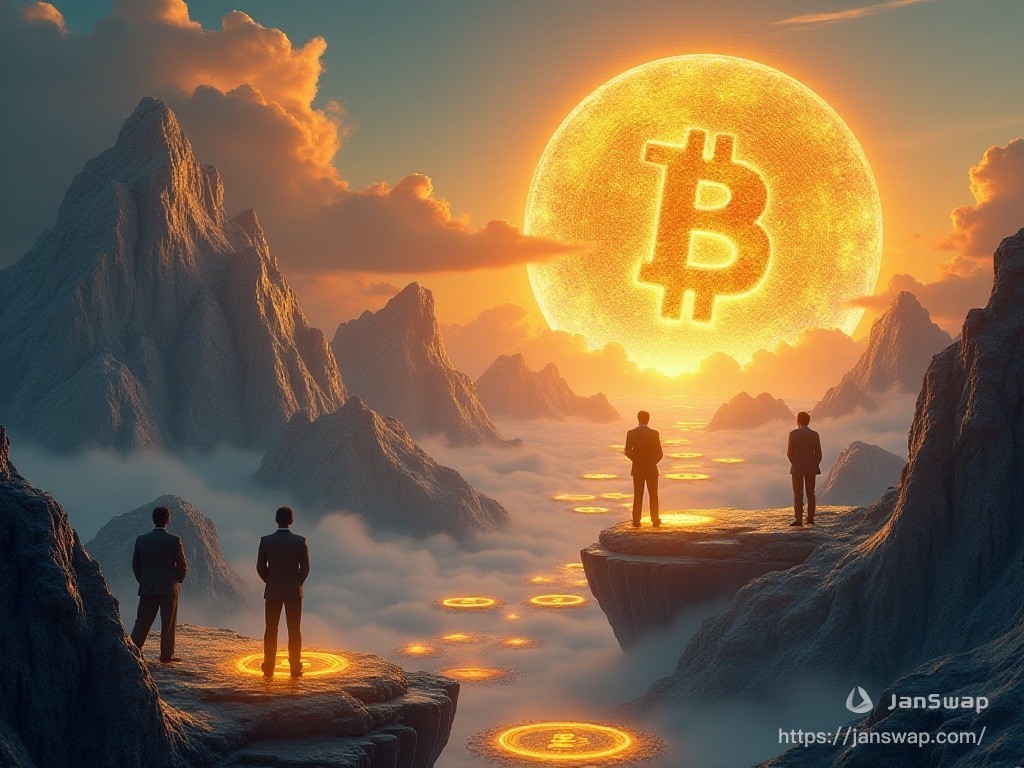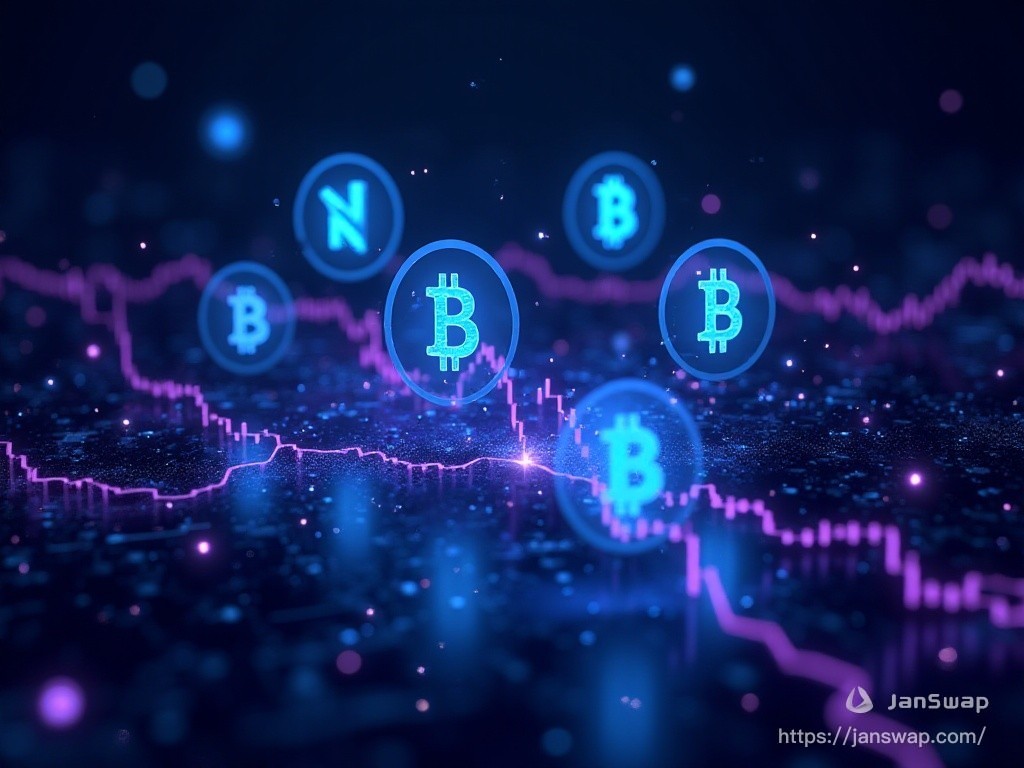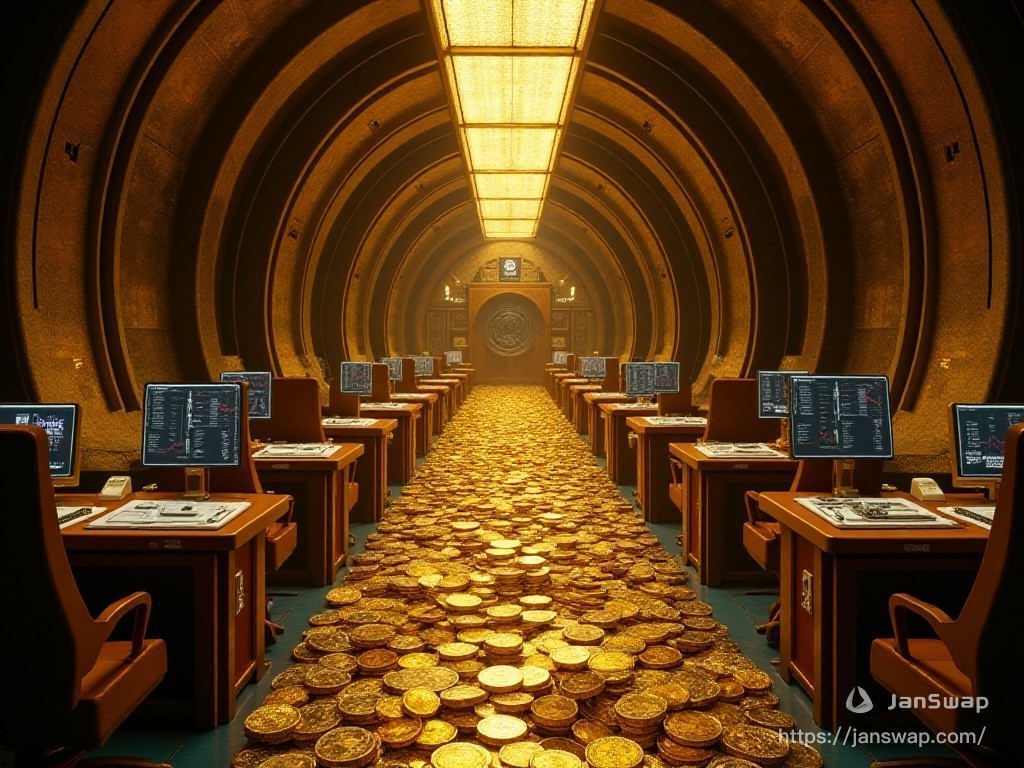

Opening Thoughts
Hello friends, I'd like to discuss cryptocurrency with you today. As someone born after 1995 who has been in the crypto space for over three years, I deeply understand that this field is full of both opportunities and risks. Are you also often confused by various technical terms? Don't worry, let me break it down for you step by step in the simplest terms.
To be honest, when I first entered this field, I was completely lost. Those professional financial terms and technical vocabulary made my head spin. But as I continued to learn and practice, I gradually discovered that this field is actually very interesting and full of huge opportunities. Looking back now, although that exploratory period was difficult, it was the most valuable learning process.
Getting Started
I remember when I first encountered cryptocurrency in late 2020. Bitcoin was breaking through $20,000 at the time, and the market was jubilant. Like many newcomers today, I started exploring this magical digital world with both excitement and trepidation.
I was working in the internet industry at the time and always liked to follow new technologies and investment opportunities. One day, while scrolling through social media, I saw several friends discussing Bitcoin, saying it was a revolutionary technology that could change the future financial system. This piqued my curiosity, so I started researching to figure out what it was all about.
At first, I was also confused by all the technical terms. Blockchain, decentralization, proof of work... these words made sense individually, but together they were bewildering. Later I found that simplifying these concepts actually made them easier to grasp.
I remember spending almost all my free time studying cryptocurrency. Every day after work, I would open my computer to watch tutorials and take notes. On weekends, I would immerse myself in various crypto communities, learning from experienced traders. Although it was tiring, I felt a great sense of achievement whenever I understood a new concept or technical principle.

Knowledge Upgrade
Do you know what? Cryptocurrency is actually like a digital currency system without a central bank. Its biggest feature is decentralization, meaning no single institution can control it independently. It's like Bitcoin is a huge shared ledger where all transaction records are clearly recorded, visible to everyone, but impossible for anyone to tamper with arbitrarily.
When I first encountered this concept, I thought it was very mysterious. Until one day, when I made my first cross-border payment using Bitcoin, I truly experienced its charm. The transaction took less than 10 minutes to complete, with very low fees. With traditional bank transfers, you'd have to wait several days and pay expensive fees. This experience gave me a more intuitive understanding of cryptocurrency.
Speaking of which, I recall an experience from 2021. I had just bought some Ethereum, and woke up in the middle of the night to find its price had surged 40%. I was so excited I couldn't go back to sleep and started frantically researching its principles. As I dug deeper, I discovered how fascinating the technical principles of cryptocurrency really were.
What attracted me most about Ethereum was its smart contract functionality. Simply put, a smart contract is like an automatically executing program that can handle various complex financial transactions. For example, you can use smart contracts for automated trading, token issuance, and even creating decentralized applications (DApps). These features make Ethereum not just a digital currency, but more like a powerful financial operating system.
During my learning process, I also discovered that blockchain technology has already penetrated many fields, such as supply chain management, digital identity verification, and the gaming industry. This made me realize that investing in cryptocurrency isn't just about making money, but more importantly, participating in a technological revolution.

Practical Experience
After several years of exploration, I've summarized some practical investment experiences. First, choosing the right trading platform is extremely important. I've stumbled through many pitfalls and used more than a dozen platforms. Looking back, liquidity and security are the two most important indicators.
Speaking of pitfalls, I must mention my first trading experience. To save on fees, I chose a small platform. During a major market movement, the platform suddenly crashed, and by the time I finally managed to log back in, I had lost quite a bit of money. This lesson taught me to be very careful when choosing a trading platform.
A 2022 statistic illustrates this well: the top ten cryptocurrency exchanges globally had daily trading volumes exceeding $20 billion. What does this indicate? It shows the market has become quite mature. However, there were 477 cryptocurrency theft incidents in 2022, with losses exceeding $3 billion. This is why choosing reliable major platforms is so important.
Besides platform selection, trading skills are also crucial. I suggest beginners start with spot trading and consider futures trading only after becoming familiar with market operations. While futures trading can bring higher returns, the risks are correspondingly higher. I've seen many friends get liquidated overnight due to blindly using high leverage.
Mindset management is also particularly important during trading. The market is always fluctuating and can't keep rising forever. When market conditions are poor, you must stay calm and not let panic emotions take control. In my experience, times of market panic can actually be the best buying opportunities.

Investment Strategy
Regarding specific investment approaches, I suggest establishing a complete investment system. For example, in terms of fund management, I always stick to one principle: never invest more than you can afford to lose. This sounds simple but isn't easy to follow.
My investment strategy consists of three levels: First is dollar-cost averaging, investing a fixed amount monthly regardless of market conditions; second is trend investing, adjusting positions based on market trends; third is swing trading, looking for trading opportunities in short-term fluctuations. The ratio between these three levels is roughly 6:3:1, which ensures stability while not missing good opportunities.
I remember the major crash in May 2021, when Bitcoin fell from $65,000 to $30,000, and many people panicked. But because I had proper position control, I calmly added to my position. Looking back at that decision now, it was indeed wise.
Portfolio allocation is also important. I typically allocate 70% of funds to mainstream coins like Bitcoin and Ethereum, 20% to promising second-tier coins, and the remaining 10% to new projects. This allocation ensures relatively stable returns while not missing potential breakout opportunities.
When choosing specific investments, I pay special attention to several aspects of projects: first, the background and capability of the technical team; second, the practical application scenarios; and third, whether the token economics model is reasonable. Only projects with solid fundamentals are worth holding long-term.

Risk Prevention
In cryptocurrency investment, risk management is absolutely crucial. I'll share three practical suggestions: First, diversify investments, don't put all your eggs in one basket; Second, set stop-losses, this is particularly important; Third, be prepared for long-term holding.
Speaking of risk management, I must emphasize the importance of fund security. My suggestion is to store most funds in hardware wallets, keeping only a small portion on exchanges for daily trading. Because even the best exchanges can have security issues, only hardware wallets with private keys are the safest.
2023 data shows that investors who diversified their portfolios across 5-7 different cryptocurrencies achieved average returns 23% higher than those holding single coins. This data provides valuable insight.
Besides portfolio diversification, timing diversification is also important. I usually spread buying and selling operations across different time periods to reduce timing risk. For example, if I want to buy 100 units, I might divide it into 5 purchases of 20 units each, so even if the price isn't ideal for one purchase, the average cost won't be too high.
Risk control also includes emotional management. Staying calm during market surges and rational during crashes is easier said than done. My experience is to set clear take-profit and stop-loss points and execute them firmly once triggered, not letting emotions affect judgment.

Future Outlook
Looking ahead, I believe the cryptocurrency industry still has huge development potential. Especially in decentralized finance (DeFi), according to latest statistics, the total value locked in DeFi has exceeded $80 billion. What does this mean? It means more and more people are starting to trust and use this new financial system.
The development of DeFi has brought significant disruption to traditional finance. For example, on DeFi platforms, you can conduct lending, trading, staking, and other operations 24 hours a day without any intermediaries. This efficiency and convenience are hard to match in traditional financial systems.
However, this industry changes very quickly, and today's hot topics might change tomorrow. So I suggest everyone keep learning and maintain an open mind. What do you think? Feel free to share your thoughts in the comments.
Besides DeFi, the NFT (Non-Fungible Token) market is also worth watching. Although the NFT market went through an adjustment in 2022, I believe innovation in this field is far from over. Particularly in gaming, art, and copyright areas, NFTs have great application potential.
The rise of the metaverse concept has also brought new possibilities for cryptocurrency. In virtual worlds, cryptocurrency is likely to become the main medium of value exchange. Although the metaverse is still in its early stages, many innovative applications will surely emerge as technology develops.

Concluding Thoughts
Looking back on these three years of cryptocurrency investment, I deeply feel this isn't just a wealth adventure, but also an upgrade in understanding. Someone once asked me, "Is it still suitable to enter the market now?" My answer is: What's important isn't when you enter, but whether you're prepared.
Investing in cryptocurrency requires not just capital, but more importantly, knowledge reserves and the right mindset. In this market, passion alone isn't enough; continuous learning and constantly improving your understanding are necessary.
Over these years, I've witnessed many people's ups and downs in the crypto world. Some became overconfident after overnight success, eventually losing everything; others achieved decent returns through continuous learning and rational investment. These experiences taught me that steady progress is more important than speculation in investment.
As someone born after 1995, I feel lucky to catch this wave of digital currency revolution. Although I've encountered many setbacks, each one taught me valuable lessons. I believe that as long as we continue learning and remain cautious, there will definitely be more opportunities in the future.
What are your thoughts on cryptocurrency investment? Or do you have any questions you'd like to ask me? Feel free to leave comments and discuss together.






 Français
Français Deutsch
Deutsch Русский
Русский Português
Português Español
Español Italiano
Italiano Türk
Türk
